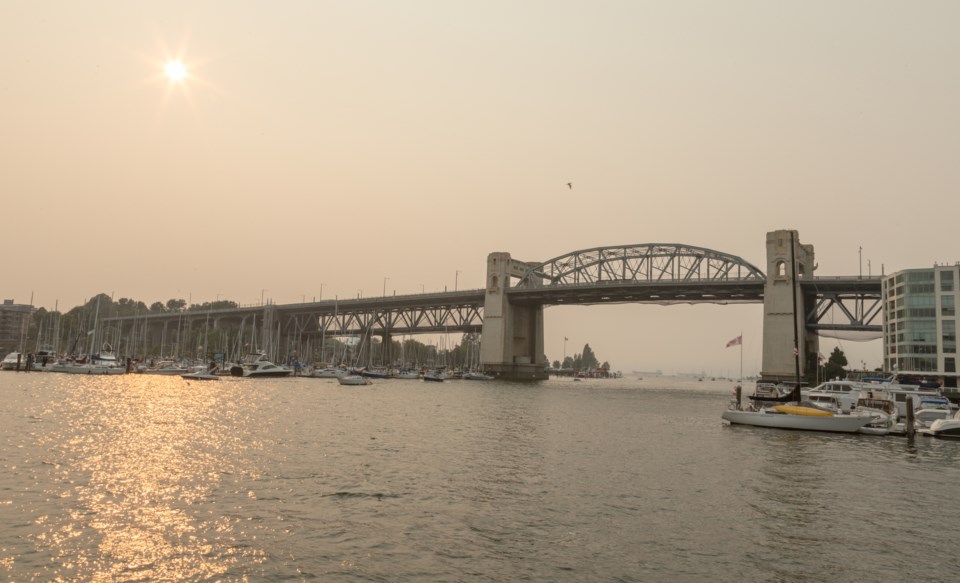Metro Vancouver is continuing its air quality advisory to all residents in eastern parts of Metro Vancouver and the Fraser Valley due to high concentrations of ground-level ozone.
High concentrations are expected to persist throughout the week alongside the latest heat wave. In addition, hazier conditions are also being seen throughout the region due to a plume of smoke from the Nohomin Creek fire near Lytton, B.C. Metro Vancouver says that despite this, there has been no significant impact on "measured fine particulate matter concentrations at ground-level."
Kyle Howe, air quality analyst with Metro Vancouver, says the current concentration of ground-level ozone is something that will have to be monitored throughout the week.
"It's data that we're watching throughout the day to see how it progresses. Given the current weather forecasts that [are] out there, it does appear that temperatures will remain conducive for increased ground-level ozone throughout the week," Howe said.
Residents are advised to avoid strenuous activity in the mid-afternoons and early evenings, when levels are at their peak. If outside, opt for activities that do not require heavy breathing such as walking as opposed to running.
Those at greater risk of being affected include:
- those who have underlying health conditions such as lung disease, heart disease, chronic obstructive pulmonary disease (COPD), including bronchitis and emphysema, as well as asthma, and diabetes;
- individuals with respiratory infections;
- pregnant women and infants;
- children and;
- older adults.
Anyone with chronic underlying medical conditions are advised to stay in cool or air-conditioned environments in the afternoons when levels are highest. In addition, activities that increase indoor pollution such as smoking or vacuuming should be avoided.
"So we do advise, obviously, that people with underlying conditions really pay attention to these advisories and take it easy and if they do have symptoms, to seek out medical attention," Howe said.
Outdoor workers in construction and agriculture are also advised that exposure is of concern. Howe advises these workers to try and lessen exposure as much as possible and seek out a cool or air-conditioned environment when possible.
The higher concentrations of ground-level ozone is seen more commonly in summer months and is not emitted directly into the air.
"It is formed when nitrogen oxides (pollutants emitted when fuels are burned) and volatile organic compounds (emitted from solvents and other sources) react in the air in the presence of sunlight," Metro Vancouver said in a media statement.
Everyone is reminded that it is important to stay cool and hydrated as temperatures continue to rise. According to Metro Vancouver, maintaining good health is another way to prevent effects due to short-term exposure to air pollution.
To lessen the impact, residents can contribute by minimizing the use of vehicles or other gasoline and diesel engines like lawnmowers and trimmers; avoiding idling their vehicle, and choosing a time to fill up on gas outside of the peak afternoon hours.
"Ground-level ozone is something that people need to pay attention to," Howe said. "It can impact everyone and it's important that people just take it easy during this time."
Anyone who experiences symptoms such as chest discomfort, shortness of breath, coughing or wheezing, should seek prompt medical attention. In case of emergency, call 911.
More information on real-time air quality readings and impacts on health can be found using Metro Vancouver's AirMap or B.C.'s Air Quality Index.



